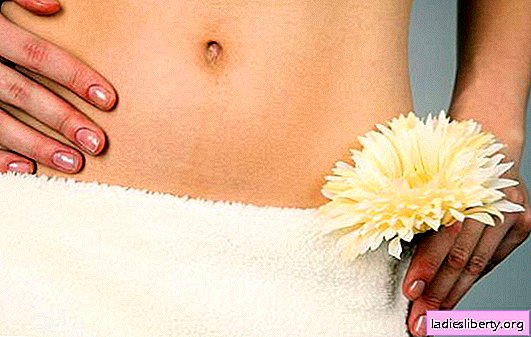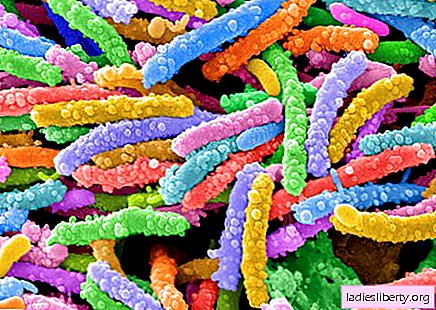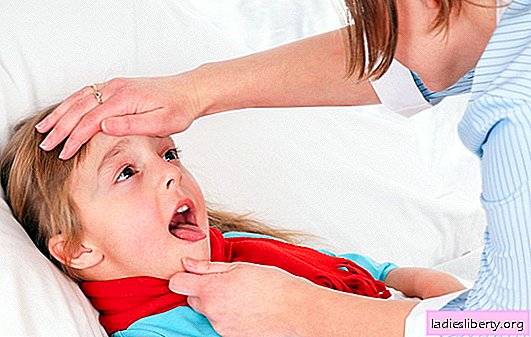
The first pads with duct tape designed to collect menstrual blood and more similar to modern ones appeared abroad in 1963. In Russia, representatives of the beautiful half of humanity learned about such a hygiene product only after 1990.
If earlier the pads were mainly intended for use during the period of menstruation, now the so-called “daily routines” that ladies wear at other times are also quite popular.
But does a woman really need such enhanced protection? Why do individual gynecologists tirelessly talk about the dangers of daily pads and urge them to abandon? Let's try to understand these controversial issues.
The benefits of daily pads and when they are used most often
Over the years, a number of women have acquired “daily routines”, calling them true salvation for their hygiene and in order to maintain perfect freshness and cleanliness. In what situations is the use of daily pads undeniable?
So, they can be useful in the following cases:
• a physiologically individual female body is prone to copious secretion of sex secretion, while there are no gynecological diseases that can provoke an increase in the volume of whites or mucus (for example, during ovulation);
• subjectively, a woman feels “dirty” even when a small drop of urine or secret appears on her panties, therefore, with the “daily” she feels more confident and can change it if necessary;
• the presence of gynecological diseases associated with copious secretion of secretions (for example, thrush, when a woman has to constantly encounter the appearance of mucus, which is similar in texture to cottage cheese and has a bad smell);
• additional protection in anticipation of menstruation - some ladies are afraid to get their underwear dirty or even be taken aback by a menstruation that has suddenly begun, so they use daily panty liners because they are much thinner than usual and do not cause discomfort;
• if you need to use small hygiene products on the days of the beginning or end of menstruation - it happens that the blood discharge is too small, so it makes no sense to use tampons or thick pads;
• when treating with vaginal suppositories or tablets, the benefits of daily pads here are obvious, because they allow you to delay the medication dissolved and escaping from the vagina (for example, when using Betadine suppositories, the discharge lasts for several hours, so a woman needs protection);
• the inability to change clothes or to wash thoroughly for a long period of time - it will be useful to take "daily" with you on a trip, camping trip, on a visit, or in another case when hygiene procedures do not take place soon. In combination with the use of wet wipes, daily pads can be a pretty good substitute for washing;
• during pregnancy or after performing medical manipulations with the genitals (operations, procedures) - at this time the amount of discharge may change, so women resort to the use of "daily";
• mild urinary incontinence - exacerbation of inflammatory diseases of the genitourinary system, advanced age, postpartum state increase the likelihood of droplets of urine in underwear.
Thus, daily panty liners can be used by women in a variety of situations, to provide comfort and help to avoid embarrassment. But is everything as good as it seems? Are the “daily routines” so harmless, and why do many gynecologists advise ladies to put the box with miniature hygiene products into a distant drawer?
What is the potential harm to daily pads?
What negative effects can a woman have “daily” when worn regularly?
Among the negative manifestations note:
• allergic reactions - the occurrence of itching, burning, redness and rash is a typical picture when the human body is too sensitive to the components that make up the fragrance. Often, daily panty liners aromatize, so some women are allergic to the components used in the production. In this case, it is recommended to try wearing the usual "daily", odorless;
• "Greenhouse effect" - often women say that when wearing pads in the genital area, diaper rash is felt. A similar phenomenon is due to the fact that hygiene products are not made from pure cellulose, but from synthetic materials. The damage from daily gaskets also enhances the adhesive layer applied to almost the entire back of the product. It is poorly breathable, does not allow the skin to "breathe";
• temporary change in vaginal microflora - with frequent wearing of "daily" contrary to the expectations of the ladies, the discharge is even more plentiful, which contributes little to cleanliness and comfort. The fact is that the number of pathogenic microorganisms increases due to the lack of access to fresh air, in addition, the woman herself can change the gasket too rarely, which also negatively affects the condition of the genitals;
• the appearance of cheesy discharge (thrush) - if dysbacteriosis is added to the above, or the lady has reduced immunity, then with frequent use of daily pads, it will be very difficult to avoid the appearance of candidiasis;
• bad smell - often its cause is lack of hygiene and violation of the regime of wearing "daily". It happens that a woman changes the gasket less often than in 3-4 hours, which, with copious discharge, leads to the decomposition of microorganisms and undesirable effects. The unpleasant smell, mixed with an artificial flavor, does not remind of freshness and purity;
• the appearance of gynecological diseases - Perhaps the most dangerous harm to daily pads. The development of bacteria on the surface of synthetic material, together with prolonged wearing of a hygiene product, especially in the summer, can provoke infections and pathologies of the genitourinary system. So, gynecologists blame the "daily" for the occurrence in women of vaginal dysbiosis, vulvovaginitis, vaginosis, inflammation of the appendages. In advanced cases and in the absence of proper treatment, the infection can rise higher and affect the kidneys, causing pyelonephritis and urinary incontinence.
For these reasons, doctors recommend that women either completely abandon their "daily routines" or minimize their use.
How to reduce the harm of daily pads?
So that the use of modern hygiene products does not end sadly for a woman, she must adhere to simple rules:
• any gaskets, including daily ones, must be changed every 4 hours or more often if the surface of the product is contaminated by about 1/3;
• preference should be given to fragrance-free products and supposedly “natural” extracts and impurities;
• each gasket must have a separate packaging (or be stored in a tightly closed box);
• it is advisable to purchase products without dyes (with a white surface);
• gaskets with a dotted adhesive line are better to let air in, which will avoid excessive sweating and irritation.
When using daily pads, sensibly assess their expected benefits and possible harm to your body. So, if you have insignificant discharges at certain periods of the cycle, then it makes sense to wear "daily", not forgetting the mode of their replacement. When a woman has negative consequences from the use of such products, then it is better to refuse them.











